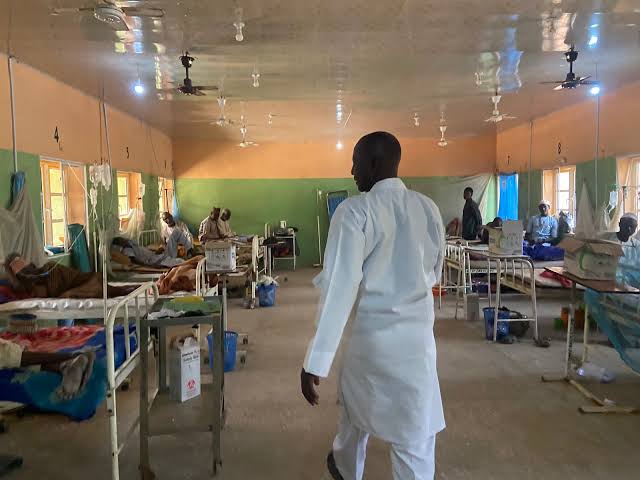BY OHIS HARENDY RAMSEY
The healthcare system in Nigeria is in a state of crisis, with millions of citizens struggling to access basic medical services.
Despite being Africa’s largest economy, Nigeria lags in key health indicators such as maternal mortality, infant mortality, and life expectancy.
The system faces numerous challenges, including inadequate funding, poor infrastructure, brain drain, and limited access to healthcare in rural areas.
One of the most pressing issues is the chronic underfunding of the healthcare sector. Nigeria allocates less than 5% of its annual budget to health, far below the 15% recommended by the Abuja Declaration.
This underinvestment has led to poorly equipped hospitals, insufficient medical supplies, and a lack of qualified personnel. Public health facilities often operate without basic necessities such as electricity, clean water, and functional equipment, leaving patients to bear the brunt of the crisis.
The healthcare workforce is also in a dire state. Thousands of Nigerian doctors and nurses have emigrated to countries like the UK, US, and Canada in search of better working conditions and pay.
This brain drain has left the country with an insufficient number of medical professionals, particularly in rural areas where the doctor-to-patient ratio is alarmingly low.
Patients in these underserved areas often have to travel long distances to access care, a situation worsened by poor transportation infrastructure.
The impact of Nigeria’s healthcare crisis is evident in its health outcomes. The country accounts for one of the highest maternal mortality rates globally, with approximately 512 deaths per 100,000 live births.
Infant and under-five mortality rates are equally concerning, exacerbated by preventable diseases such as malaria, pneumonia, and diarrhea.
Non-communicable diseases like diabetes and hypertension are also on the rise, but limited awareness and access to care have hindered effective management.
Addressing the healthcare crisis requires a multifaceted approach. The government must prioritize increased funding for health, ensuring that resources are allocated to critical areas such as infrastructure, training, and equipment.
Partnerships with international organizations can provide technical and financial support, while policies that incentivize healthcare professionals to remain in the country are essential.
Expanding health insurance coverage and implementing community-based healthcare programs can also improve access, particularly for rural and low-income populations.
The healthcare system in Nigeria is at a crossroads. Without urgent reforms and sustained investment, millions of lives will continue to be at risk.
However, with strategic action and commitment, the nation has the potential to build a healthcare system that meets the needs of its people and lays the foundation for a healthier future.
OHIS HARENDY RAMSEY IS A 300 LEVEL STUDENT FROM MASS COMMUNICATION DEPARTMENT BORNO STATE UNIVERSITY, BORNO STATE.












